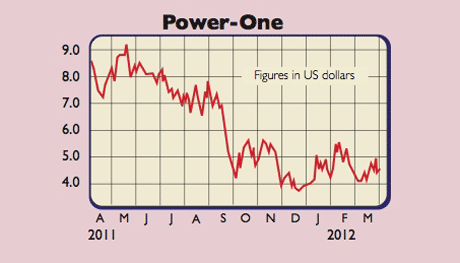Get the latest financial news, insights and expert analysis from our award-winning MoneyWeek team, to help you understand what really matters when it comes to your finances.
You are now subscribed
Your newsletter sign-up was successful
Want to add more newsletters?

Twice daily
MoneyWeek
Get the latest financial news, insights and expert analysis from our award-winning MoneyWeek team, to help you understand what really matters when it comes to your finances.

Four times a week
Look After My Bills
Sign up to our free money-saving newsletter, filled with the latest news and expert advice to help you find the best tips and deals for managing your bills. Start saving today!
The problems in the solar sector are well known. Huge excess capacity, especially in China, has swamped the market and sent solar prices down 40%-70% over the past 12 months. But these cheap prices in many cases below current production cost, even in China mean we've reached a tipping point in the industry.
In many regions, I estimate it is now cheaper to install solar cells than to build a new coal-fired power station. This is even true without any assistance from state subsidies and explains why the volumes of photovoltaic (PV) projects rose a staggering 70% last year to 27.7GW, according to the European Photovoltaic Industry Association.
One company benefiting from this growth is Power-One. It makes inverters (which harvest solar or wind energy and convert the electricity produced onto the right frequency so that it can be pumped back into the grid). These account for 70% of sales. It also sells equipment that helps to regulate the power consumption of data centres and other IT operations.
MoneyWeek
Subscribe to MoneyWeek today and get your first six magazine issues absolutely FREE

Sign up to Money Morning
Don't miss the latest investment and personal finances news, market analysis, plus money-saving tips with our free twice-daily newsletter
Don't miss the latest investment and personal finances news, market analysis, plus money-saving tips with our free twice-daily newsletter
In 2011, the firm generated $1bn in revenues and earnings per share (EPS) of 88 cents. It closed December with a huge cash mountain of $204m (about $1.45 per share). During the fourth quarter, Power-One shipped enough inverters to give it the equivalent of a 10% global share.
Power-One (Nasdaq: PWER)

There are two areas of concern. One is Europe, the world's biggest installer. The other is the impact of further reductions in feed-in-tariffs' subsidies to consumers for adopting renewables. The good news is that any dip should be short-lived.
Germany, Italy, Switzerland and quite likely other countries such as Japan have decided to turn their backs on nuclear power after the Fukushima disaster. So renewables will still play a major role in future energy requirements.
Wall Street is forecasting 2012 turnover and underlying earnings per share of $962m and 55 cents respectively rising to $1.05bn and 67 cents in 2013. As such, I rate the stock on a ten-times EBITA multiple. After adjusting for the cash pile and $36m of preference shares, that generates an intrinsic value of more than $6 a share.
Investors should note that Power-One is a small business up against larger rivals, such as Siemens. Risks include price deflation, excess capacity and fluctuations in subsidies. But these are outweighed by the group's first-rate technology, strong balance sheet and excellent long-term prospects.
Get the latest financial news, insights and expert analysis from our award-winning MoneyWeek team, to help you understand what really matters when it comes to your finances.
Paul gained a degree in electrical engineering and went on to qualify as a chartered management accountant. He has extensive corporate finance and investment experience and is a member of the Securities Institute.
Over the past 16 years Paul has held top-level financial management and M&A roles for blue-chip companies such as O2, GKN and Unilever. He is now director of his own capital investment and consultancy firm, PMH Capital Limited.
Paul is an expert at analysing companies in new, fast-growing markets, and is an extremely shrewd stock-picker.
-
 Can mining stocks deliver golden gains?
Can mining stocks deliver golden gains?With gold and silver prices having outperformed the stock markets last year, mining stocks can be an effective, if volatile, means of gaining exposure
-
 8 ways the ‘sandwich generation’ can protect wealth
8 ways the ‘sandwich generation’ can protect wealthPeople squeezed between caring for ageing parents and adult children or younger grandchildren – known as the ‘sandwich generation’ – are at risk of neglecting their own financial planning. Here’s how to protect yourself and your loved ones’ wealth.